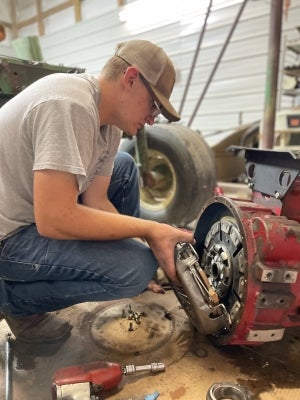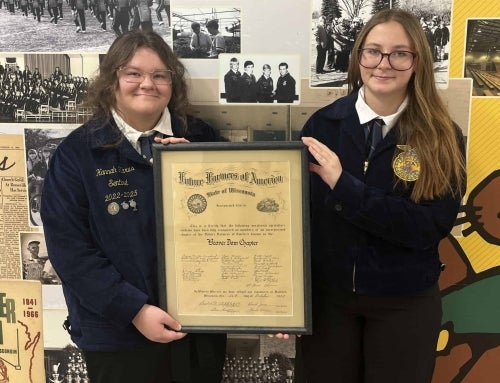Winter is the perfect time to refresh and refine your record-keeping skills before the busy spring application season begins.
Boonville FFA member Seth Timm of Missouri has found success documenting strong records for his multiple supervised agricultural experiences (SAEs), which include cattle and swine ownership operations, restoring tractors and providing lawn care services in his community. Here, Timm shares five helpful tips for managing and documenting records.

Seth Timm’s supervised agricultural experience includes restoring tractors.
1. Log your paychecks and expenses in a timely manner.
Why put off something you can do today? Timm says it’s a good habit to start inputting your paychecks and expenses as soon as they arise. When he receives a paycheck, Timm promptly enters it into his record book. He also keeps his receipts in a filing cabinet, so he can track expenses and log them shortly after making purchases.
2. Document your SAE(s).
Although it might be tempting to skip, Timm recommends taking time to accurately fill out information about your SAE(s). If you decide to submit an award or degree application at the local, state or national level, judges will review your records related to your project(s). Doing this step ensures you have information when you need it most, he says.
3. Push yourself.
Your SAE may involve working directly with employers, coworkers and customers. It’s important to leave a positive, lasting impression. One of the most valuable skills Timm learned is how to give his best effort when dedicating time to his projects.
4. Lean on those around you.
When learning the ins and outs of record keeping, Timm counted on Deanna Schnuck, his agriculture teacher and FFA advisor, to help him through the process. Navigating a record-keeping system can be challenging, so asking a teacher, advisor or an older FFA member for assistance is always a solid option.
5. Utilize your resources.
Take the time to learn your chosen record-keeping system. Most record-keeping systems provide how-to guides, start-up helps, instructions and best practices. Check out online communities to learn how best to use your selected system.
Seth uses the online AET record keeping system. To learn more about the AET record keeping system, visit theaet.com/studenthelp.












